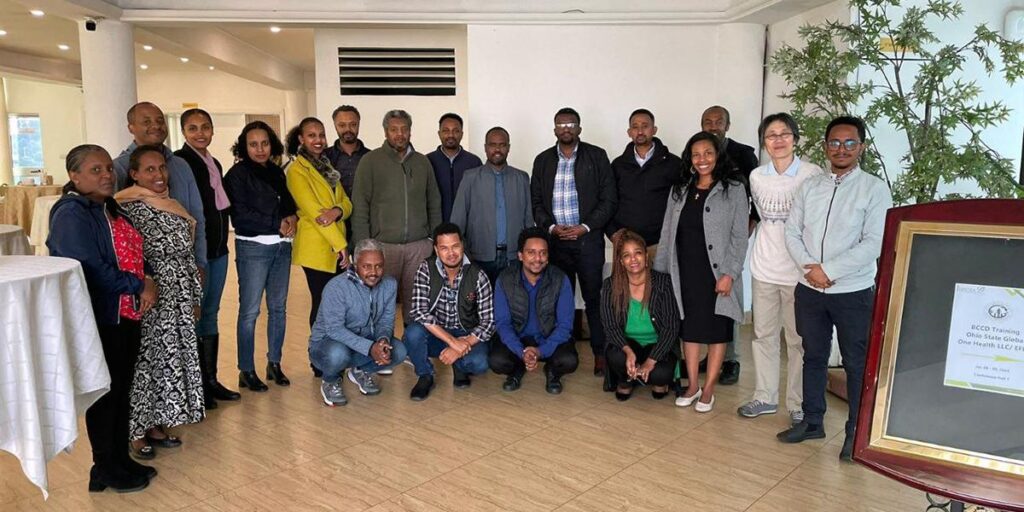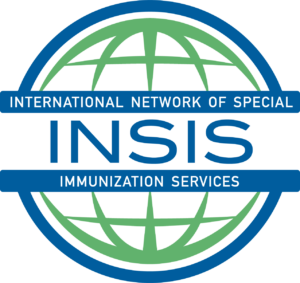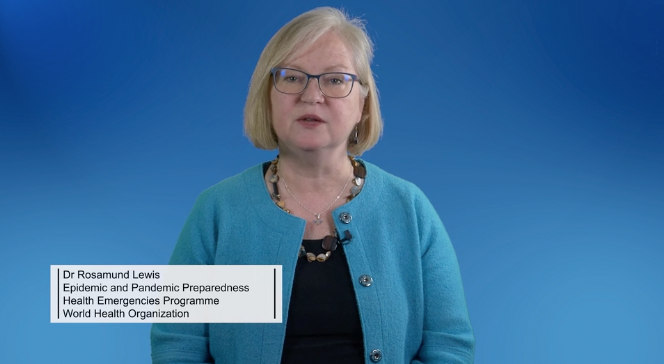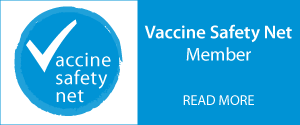Brighton Collaboration News
Quarterly Updates From Our Vaccine Safety Community
September 2024
Letter from our Research Director
The World Health Organization declared the expanding mpox outbreak in Africa a global public health emergency of international concern on August 14. The emergence of a novel, virulent clade 1b in the Democratic Republic of Congo during late 2023 expanded rapidly through human-to-human transmission, resulting in over 15,000 cases and over 500 deaths as of August, 2024. During August, imported cases were detected in other African countries, Sweden, and Thailand. Orthopoxvirus vaccines licensed for mpox (MVA-BN, LC16m8, and ACAM2000) are being donated to DRC and affected countries to control the outbreak.
Brighton’s SPEAC Project has been working with CEPI and other vaccine safety coalition partners including GVDN and INSIS to offer support through CEPI for mpox vaccine safety assessments in DRC and other affected countries in Africa. SPEAC identified a list of possible adverse events of special interest (AESI) for mpox vaccines proposed for use in the outbreak (MVA-BN and LC16m8). This initial list is now available on speacsafety.net and is open to comment. We invite Brighton members to provide input on the list, and we will continue to update the AESI list with the rationale for inclusion, and with more evidence as it is reviewed.
Thank you to our Brighton Collaboration community members for your ongoing support of our work and review of our tools and resources. Together we continue to strengthen vaccine safety efforts around the world.

Community Updates

SPEAC Executive Board meets with CEPI and Meta-DSMB in London (SPEAC)
The SPEAC Executive Board, Meta-DSMB, and Project Management Team joined CEPI’s Clinical Development Team in London in June to discuss strategy, ongoing work, and opportunities for collaboration. First, SPEAC’s Meta-DSMB met to discuss their work to support CEPI awardees. The SPEAC Executive Board also met with Heidi Larson, Professor of Anthropology, Risk and Decision Science at the London School of Tropical Medicine and Hygiene (LSTMH). In a meeting at The Wellcome Trust offices with CEPI’s Clinical Development Team, IQVIA, and other partners, SPEAC Executive Board members presented an overview of the SPEAC project’s first years. Read more >
Funding Postauthorization Vaccine-Safety Science (New England Journal of Medicine)
This Perspectives piece proposes a new way to fund post-authorization vaccine safety research in the U.S. The authors advocate amending a tax law to allow the surplus funds from the Vaccine Injury Compensation Program to support the detection, investigation, and prevention of vaccine adverse reactions after a vaccine is approved for use.
Dr. Punnee Pitisuttithum: Engaging community in active vaccine safety surveillance (Brighton Collaboration)
A member of both Brighton Collaboration and the Safety Platform for Emergency Vaccines project’s Meta-DSMB, Dr. Punnee Pitisuttithum not only has extensive experience serving on Data and Safety Monitoring Boards (DSMBs) but also as a principal investigator at vaccine clinical trial sites. Through her roles in clinical trials for HIV, dengue, and chikungunya vaccines, Dr. Pitisuttithum has contributed to the implementation of active vaccine safety surveillance activities that build relationships and trust at the community level. Read more >
Companion Guide to the Case Definition for Acute Aseptic Arthritis (SPEAC)
The Companion Guide to the Brighton Collaboration Case Definition for Acute Aseptic Arthritis is now available. Developed as part of the SPEAC Project, the Companion Guide includes ICD9/10-CM, MedDRA & SNOMEDCT codes, background rates, risk factors, guidance, and tools including a data abstraction & interpretation form for Acute Aseptic Arthritis.
Initial AESI List for Mpox now available (SPEAC)
The SPEAC Project has developed an initial list of AESI for mpox vaccines. This list was developed by reviewing the existing vaccinia-associated AESI list and Brighton Collaboration (BC) case definitions (CDs) for relevance to LC16 and MVA-BN, and focused reviews of the peer-reviewed and gray literature to inform AESIs relevant to these two vaccines. SPEAC identifies AESIs based on three criteria: 1) Known association with immunization or a specific vaccine platform, 2) Occurrence during wild-type disease as a result of viral replication and/or immunopathogenesis, and 3) Theoretical association based on animal models. The AESI list for mpox vaccines is derived from mpox disease pathogenesis and vaccine platforms, as well as considerations for manifestations in special populations (children, pregnant women, and immunocompromised hosts, including people living with HIV). The SPEAC Executive Board welcomes input on this AESI list and will update it periodically. Please share input with the SPEAC and Brighton Collaboration team at bc-coordinator@taskforce.org.
This manuscript uses the BRAVATO template to report the key considerations for a benefit-risk assessment of the coronavirus disease 2019 (COVID-19) mRNA-based vaccine BNT162b2 (Comirnaty®, or Pfizer-BioNTech COVID-19 vaccine) including the subsequent Original/Omicron BA.1, Original/Omicron BA.4–5 and Omicron XBB.1.5 variant-adapted vaccines developed by BioNTech and Pfizer to protect against COVID-19 caused by severe acute respiratory syndrome coronavirus 2 (SARS-CoV-2).

Applying the Brighton Collaboration Case Definition for causality assessment (The Ohio State University)
In collaboration with the Ethiopian Food and Drug Authority (EFDA), the Ohio State University Global One Health initiative (GOHi) recently provided two days of training on Brighton Collaboration case definitions (BCCDs) to members of the national Pharmacovigilance Advisory Committee and experts from the EFDA and selected hospitals in Addis Ababa, Ethiopia. Brighton Collaboration member and SPEAC Project expert, Wan-Ting Huang, led the training.
Safety and Effectiveness of COVID-19 Vaccines During Pregnancy: A Living Systematic Review and Meta-analysis (Drug Safety)
A comprehensive new study by the Safety Platform for Emergency vACcines (SPEAC) assessed the safety and effectiveness of COVID-19 vaccines for pregnant persons. The living systematic review indicates that mRNA vaccines significantly reduce risks of emergency cesarean deliveries and stillbirths and offer substantial protection against severe COVID-19 cases. The study found no associations between COVID-19 vaccination during pregnancy and adverse maternal-pregnancy-related and infant outcomes, regardless of the trimester of exposure and type of vaccine.
Update from the International Network of Special Immunization Services (INSIS)
The International Network of Special Immunization Services (INSIS) led by Dr. Karina Top (University of Alberta) and Dr. Robert Chen (Brighton Collaboration), in partnership with SPEAC and GVDN, continues to progress in two CEPI-supported multi-country studies: aimed at identifying clinical and biomarker risk factors associated with myopericarditis and thrombosis with thrombocytopenia syndrome (TTS) following COVID-19 vaccination, and describing the barriers and facilitators to adverse event case investigation, data and sample collection in low- middle- and high-income countries. A catalogue for biobanked samples was created, informing the multi-OMICs assay prioritization. Clinical data are stored in a REDCap database, and analysis will begin after data transfer, with early results expected in 2025.
INSIS is working with CEPI, SPEAC, and GVDN to develop strategies to support vaccine safety assessment for new vaccine programs, such as mpox which was recently declared a Public Health Emergency of International Concern, through developing a flexible “AESI X” protocol and toolkit for sample collection in the event of a safety concern, which can be implemented in high and lower resource settings.
Follow INSIS’ LinkedIn page for updates on network activities: INSIS is open to new members for information, please contact INSIS Operations Assistant [Amanda Wilson, arwilso2@ualberta.ca]

Recent Studies Related to Brighton Case Definitions
The Brighton Collaboration Case Definitions were successfully applied in > 95 % of prospective cases in a large referral hospital in Ethiopia, with generalized convulsion, pericarditis, and encephalomyelitis as the exceptions. The researchers detected 203 AESI cases. The most detected conditions were thrombosis and thromboembolism (n = 100, 49 %) and generalized convulsions (n = 38, 19 %). Ninety-six percent of the cases were confirmed at levels 1–3 (n = 187) or level 5 (n = 9) LOC. Non-classifiable (level 4) cases were observed for pericarditis (n = 2), encephalitis (n = 2), myelitis (n = 2), and generalized convulsion (n = 1). They recommend further evaluation in other low-resource settings, particularly in rural or non-referral hospitals, to gain additional insights into the performance of these definitions for revision or adaptation, as needed.
This study validated a proposed Brighton Collaboration case definition for vaccine-induced immune thrombocytopenia and thrombosis (VITT). A data collection form was developed and used to capture the variations in VITT criteria and assess their level of diagnostic certainty from adjudicated positive VITT case datasheets in Germany (n = 71), UK (n = 220), Australia (n = 203), and Taiwan (n = 56). There was high prevalence of each component of the proposed VITT definition in positive cases (84%–100%), except for the occurrence of thrombosis or thromboembolism criterion in only 34% of VITT cases in Taiwan. The sensitivity of this proposed definition was 100% for Germany and the UK, 92% for Australia, and 89% for Taiwan cases. These findings support the validity of this case definition for VITT.
The life cycle of vaccines evaluated by the European Medicines Agency (Vaccine)
This study describes the evidence used to support benefit-risk evaluations of vaccines centrally assessed by the European Medicines Agency (EMA) and identifies if real-world data (RWD) was used throughout the vaccine life cycle. It also mentions that recent efforts to develop a vaccine-specific framework have been developed by the Brighton Collaboration and the final tool can be valuable for future assessments, not only for regulatory authorities but also other decision-making bodies.
Vaccine Safety in the News
WHO declares mpox a global public health emergency for second time in two years (Reuters)
The World Health Organization declared mpox a global public health emergency for the second time in two years, following an outbreak of the viral infection in the Democratic Republic of Congo that has spread to neighboring countries. The outbreak in Congo began with the spread of an endemic strain, known as clade I. But a new variant, clade Ib, appears to spread more easily through routine close contact, including sexual contact. It has spread from Congo to neighboring countries, including Burundi, Kenya, Rwanda, and Uganda, triggering the action from the WHO.
After COVID and Ebola, doctors take on mpox amid conflict in eastern DRC (Al Jazeera)
The mpox outbreak puts pressure on the eastern region already struggling with a lack of medicines and an ongoing armed rebellion. For prevention, although there is a vaccine in existence (originally developed for smallpox) that can help reduce the risk of contracting mpox, this is not available to the most at-risk in DRC. It’s something experts and some African leaders blame on vaccine inequality and the stockpiling by Western countries that was also witnessed during the COVID pandemic.
Children at significant risk from surging mpox outbreak in the Democratic Republic of the Congo (UNICEF)
UNICEF Regional Director for West and Central Africa, Gilles Fagninou, says, “The evidence indicates that children, especially those malnourished or affected by other illnesses, are the most vulnerable to catching and dying from this strain of mpox. Protecting them must be the top priority.”
Oropouche virus 101: A guide to a little-known virus that’s raising concern this year (NPR)
There is no vaccine for Oropouche virus, and creating one might be challenging because — like the flu — this virus is made up of several parts that can shift. If they do shift, it’s harder to target the virus with a shot.
Empathy should guide responses to reported vaccine injuries (STAT)
There has been increased attention on people who report long-term negative effects of Covid-19 vaccines. They are not conspiracy theorists or vaccine skeptics. They are, among others, scientists who appreciate the enormous value of vaccines. People who feel they have been harmed by a vaccine do not need to have the science immediately explained to them. What they first need is to be heard, and then assured that science will follow.
Botswana’s pharmacovigilance system set to gain from integration of Vigimobile (Uppsala Reports)
In Botswana, a significant step was taken to enhance the surveillance and management of adverse events following immunization (AEFI) with the introduction of VigiMobile for vaccines and VigiFlow into its immunization program. VigiMobile is an app that allows healthcare professionals (HCPs) to report AEFI efficiently from remote areas with little access to the internet. Data can be entered offline, and once connected, can be transmitted to VigiFlow, Botswana’s dedicated national data management system for managing adverse events.
Looking for Long Covid: A Clash of Definition and Study Design (Undark)
This story covers criticism of the Veterans Affairs EHR studies that have been featured prominently in top journals. Few experts dispute that long Covid can be debilitating, or that it warrants careful study. But in interviews with Undark, several experts said that it is misleading to frame long Covid as an increasing threat.
Guidance and Reports
Pathogens prioritization: a scientific framework for epidemic and pandemic research preparedness (WHO)
This document outlines the findings of a global pathogen prioritization process involving over 200 scientists from more than 50 countries who evaluated the evidence related to 28 Viral Families and one core group of Bacteria, encompassing 1,652 pathogens. This process emphasized the imperative nature of collaborative efforts to attain global resilience against epidemics and pandemics.
Smallpox and mpox (orthopoxviruses) vaccine position paper (Weekly Epidemiological Record | WHO)
In accordance with its mandate to provide normative guidance to Member States on health policy matters, WHO issues a series of regularly updated position papers on vaccines and combinations of vaccines against diseases that have an international public health impact. This position paper is concerned with vaccines and vaccination against mpox and smallpox. Since the publication of the 2014 meeting report on smallpox vaccines, and the 2022 interim guidance on mpox vaccines and immunization, there have been reported changes in the epidemiology of mpox, particularly in endemic settings, and new evidence has emerged regarding effectiveness, safety, and public health benefits of vaccines. This document replaces the 2022 interim guidance on mpox vaccination and the 2014 meeting report on smallpox vaccines and smallpox vaccination. It contains off-label recommendations.
Featured Research
The overall safety profile of COVID-19 vaccines in immunocompromised people was favorable, with minor differences as compared to non-immunocompromised vaccinees. Participants mostly experienced mild ADRs, mainly reported after the first dose of Vaxzevria and Jcovden vaccines. Serious ADRs and AESI were rare.
Yellow Fever Vaccine Safety Perception of Pregnant Women in Emergency Response Mass Vaccination in Uganda (The American Journal of Tropical Medicine and Hygiene)
A qualitative study was conducted in pregnant women on the perception of yellow fever mass vaccination. In total, interviews with 20 women—13 semi-structured interviews and one focus group discussion with seven participants—were analyzed. This study showed that conflicting information about vaccine safety led to concern about miscarriage. Furthermore, it was believed that vaccination during gestation would concurrently immunize the fetus by transplacental antibody transfer. Consultation of health workers at the vaccination site led to diverse recommendations. When vaccinating pregnant women, clear health communication is crucial. Health officials should adhere to the official YF vaccination criteria, and health workers should be trained to address emerging vaccine concerns.
Applying two approaches to detect unmeasured confounding due to time-varying variables in a self-controlled risk interval design evaluating COVID-19 vaccine safety signals, using myocarditis as a case example (American Journal of Epidemiology)
The authors tested the robustness of the self-controlled risk interval (SCRI) design in a setting where time between doses may introduce time-varying confounding, using both negative control outcomes (NCOs) and quantitative bias analysis (QBA). The NCO was not associated with any of the COVID-19 vaccine types or doses except Moderna dose 1 (IRR = 1.09, 95%CI 1.01-1.09). The QBA suggested even the strongest literature-reported confounder (COVID-19; RRmyocarditis = 18.3) could only explain away part of the observed effect from IRR = 3 to IRR = 1.40. The SCRI seems robust to unmeasured confounding in the COVID-19 setting, although a strong unmeasured confounder could bias the observed effect upward. Replication of our findings for other safety signals would strengthen this conclusion.
Additional Articles of Interest
-
- Safety and durability of mRNA-1273–induced SARS-CoV-2 immune responses in adolescents: results from the phase 2/3 TeenCOVE trial (eClinicalMedicine | The Lancet)
- Tinnitus after COVID-19 vaccination: Findings from the vaccine adverse event reporting system and the vaccine safety datalink (American Journal of Otolaryngology)
- Safety and immunogenicity of the live-attenuated hRVFV-4s vaccine against Rift Valley fever in healthy adults: a dose-escalation, placebo-controlled, first-in-human, phase 1 randomized clinical trial (The Lancet)
- Efficacy and safety of COVID-19 vaccination in solid organ transplant recipients: a systematic review and network meta-analysis (American Journal of Transplantation)
- Timing of pertussis vaccination during pregnancy: Evidence and implementation – A systematic review (Vaccine)
- Adverse reactions following MPox (monkeypox) vaccination: An overview from the Dutch and global adverse event reporting systems (British Journal of Clinical Pharmacology)
- Oropouche fever, the mysterious threat (The Lancet Infectious Diseases)
Upcoming Events and Opportunities
New courses on OpenWHO
The OpenWHO platform hosts open-access courses on mpox to support the response to the current emergency. These courses cater to different levels of knowledge and expertise, and are available in multiple languages, ensuring accessibility for a diverse audience. You can access each course below:
- Mpox and the 2022-2023 global outbreak
- Mpox: Introductory course for African outbreak contexts
- Mpox: Epidemiology, preparedness and response for African outbreak contexts
Call for Submissions: Pandemic Preparedness in Vaccine Safety and Regulation (Frontiers)
The goal of this Research Topic is to learn from the challenges facing pharmacovigilance during past pandemics and describe lessons learned on how we can better prepare for a future pandemic. This includes research on the use of different types of data-sources for vaccine safety studies, methods development and innovation for vaccine safety analysis and automation in drug safety research. This topic also welcomes contributions on communication to the public during a pandemic about vaccine safety and regulation. Original Research articles, Reviews, Policy Briefs, and Perspectives addressing, but not limited to, the following themes are welcome in this Research Topic:
- Innovative Regulatory Frameworks: Exploring adaptive licensing pathways, real-world evidence generation, and post-market surveillance strategies for pandemic vaccines.
- Vaccine Safety Monitoring: Investigating pharmacovigilance systems, adverse event reporting, and risk communication strategies in pandemic settings.
- Ethical Considerations: In the context of pandemics, examine issues of equity, access, informed consent, and vaccine hesitancy.
- Global Collaboration: Analyzing international cooperation in vaccine development, regulation, and distribution during pandemics.
- Lessons Learned: Identifying key takeaways from the COVID-19 pandemic and previous outbreaks to inform future vaccine safety and regulatory practices.
ISOP Patient Safety Day: September 12-13
Healthcare professionals, patient advocates, and anyone passionate about patient safety are invited to participate in this free online event dedicated to improving patient safety worldwide, hosted by the International Society of Pharmacovigilance.
The National Research Service Award training grant is a unique opportunity designed to prepare MDs, PhDs, or those with equivalent degrees, for careers in vaccinology. Each fellow selects the laboratory research track, clinical track, or combined laboratory and clinical track. The program offers all trainees broad exposure to both laboratory and clinical trial phases of vaccinology. Applications are reviewed annually between January and March for the upcoming training period. The upcoming training period runs from July 1, 2025 – June 30, 2026. The 2025-2026 application deadline is January 31, 2025.
Vaccine Webinar Series – Children’s Hospital of Philadelphia
The Vaccine Education Center (VEC) at Children’s Hospital of Philadelphia, together with the Pennsylvania chapter of the American Academy of Pediatrics and Nesbitt School of Pharmacy at Wilkes University, is pleased to offer a Vaccine Webinar Series for healthcare providers. The series is supported by the Thomas F. McNair Scott Endowed Research and Lectureship Fund. Each Current Issues in Vaccines webinar presents topics being addressed by the Advisory Committee on Immunization Practices (ACIP), covered by the media, or asked by parents. Specific topics will be available on the registration page approximately one to two weeks before each event. Each presentation will be 40 to 45 minutes, followed by 15 to 20 minutes of audience questions.
Open Access Textbook: Vaccination Programmes | Epidemiology, Monitoring, Evaluation by Susan Hahné, Kaatje Bollaerts, Paddy Farrington
Vaccination programs are of vital importance to public health and are present in virtually every country in the world. By promoting an understanding of the diverse effects of vaccination programs, this textbook discusses how epidemiologic methods can be used to study, in real life, their impacts, benefits, and risks. Written by expert practitioners in an accessible and concise style, this book is interspersed with practical examples that allow readers to acquire understanding through real-life data and problems.
MedDRA Training Videos
The Medical Dictionary for Regulatory Activities (MedDRA) publishes a series of training videos on YouTube. The videos cover topics such as:
Not yet a Brighton Collaboration member? Sign up here to receive our quarterly newsletter.





